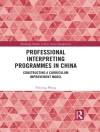Highlighting the close relationship between linguistic explanation and learnability, Bruce Tesar and Paul Smolensky examine the implications of Optimality Theory (OT) for language learnability.Highlighting the close relationship between linguistic explanation and learnability, Bruce Tesar and Paul Smolensky examine the implications of Optimality Theory (OT) for language learnability. They show how the core principles of OT lead to the learning principle of constraint demotion, the basis for a family of algorithms that infer constraint rankings from linguistic forms.Of primary concern to the authors are the ambiguity of the data received by the learner and the resulting interdependence of the core grammar and the structural analysis of overt linguistic forms. The authors argue that iterative approaches to interdependencies, inspired by work in statistical learning theory, can be successfully adapted to address the interdependencies of language learning. Both OT and Constraint Demotion play critical roles in their adaptation. The authors support their findings both formally and through simulations. They also illustrate how their approach could be extended to other language learning issues, including subset relations and the learning of phonological underlying forms.
Paul Smolensky & Bruce Tesar
Learnability in Optimality Theory [PDF ebook]
Learnability in Optimality Theory [PDF ebook]
Mua cuốn sách điện tử này và nhận thêm 1 cuốn MIỄN PHÍ!
Ngôn ngữ Anh ● định dạng PDF ● Trang 148 ● ISBN 9780262284790 ● Nhà xuất bản The MIT Press ● Được phát hành 2000 ● Có thể tải xuống 3 lần ● Tiền tệ EUR ● TÔI 7973024 ● Sao chép bảo vệ Adobe DRM
Yêu cầu trình đọc ebook có khả năng DRM












